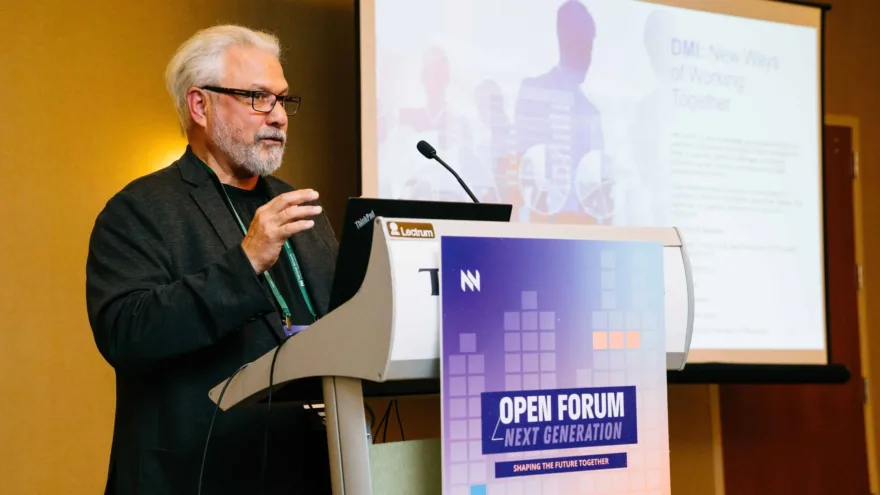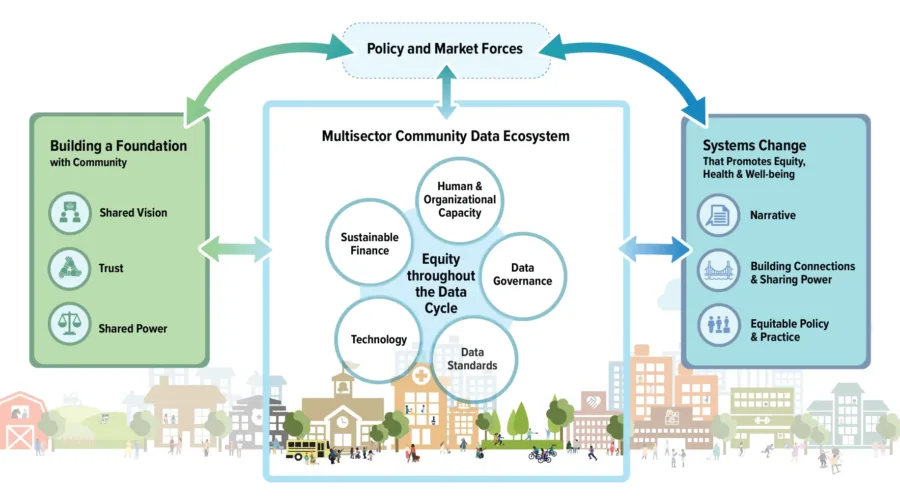Data modernization has become a cornerstone of public health discussions, with most recent webinars, conferences, and blog posts now emphasizing its importance. The National Network of Public Health Institutes (NNPHI) Open Forum Conference was no exception. From leveraging electronic medical records to advance chronic disease data to exploring how AI is revolutionizing data science training, the future of the public health workforce depends on new and seasoned professionals poised to innovate and modernize data systems and practices.
In a dynamic half-day workshop, which took place in advance of NNPHI’s Open Forum, the Data Across Sectors for Health (DASH) team engaged nearly 30 public health professionals, equipping them with tools to make meaningful contributions to their organizations’ data modernization efforts. The session began with a review of recent milestones in data modernization, introduced a comprehensive framework, and culminated in practical case studies. This interactive approach provided participants with insights and strategies to advance data modernization initiatives within their jurisdictions.
The current momentum behind data modernization gained significant traction in 2019 when the Council of State and Territorial Epidemiologists (CSTE) released a white paper advocating for a “public health data superhighway.” This visionary concept proposed moving away from fragmented, disease-specific data silos and manual data sharing, to establishing a unified public health data infrastructure capable of seamless, interoperable data exchange across federal, state, and local levels. This call for data that is well-governed, insightful, and adaptable resonated throughout the public health sector.
Furthering the cause, in 2020, Congress responded with an initial $50 million investment—the first-ever base funding for Data Modernization Initiative (DMI). The funds were intended to bolster core surveillance capabilities and tackle pressing data modernization challenges that had long hindered coordinated efforts. Since then, support for data modernization has only expanded, with annual funding rising to $100M in FY 2022 and $175M in FY 2023.
As part of the Public Heath Infrastructure Grant (PHIG) a total of $3.685B was awarded to 107 public health departments in all 50 states, Washington D.C., eight territories/freely associated states, and 48 large localities. Priorities of these dollars are to create a more resilient public health system. This includes safety and security for communities to better detect outbreaks and emergencies, pipelines to public health careers, and health equity— making services more accessible to the populations most under resourced.
While technology is a vital component of data modernization, it alone cannot drive the transformative change needed within public health. Building connections and fostering trust at the community level are equally crucial, as these relationships often serve as the catalyst for successful data-sharing initiatives. Embracing a holistic perspective that addresses both technological and human elements is essential to tackling the complexities of data modernization.
These historic investments provide an unprecedented opportunity, but realizing meaningful, lasting change requires more than funding. Organizations like (DASH) play a pivotal role in supporting jurisdictions as they navigate the challenges of modernization, offering guidance to ensure that strategies are both impactful and sustainable. By blending technological advances with community engagement, public health can move closer to a resilient, interconnected data ecosystem that serves everyone more effectively.
Co-led by the Illinois and Michigan Public health Institution, the DASH team has supported nearly 200 communities through financial support and technical assistance supporting “data-sharing ecosystems to achieve health equity.” Through several rounds of feedback, the DASHFramework 3.0: Building Equitable Data Ecosystems for Fostering Community Health was established as a tool to promote new data possibilities by centering community voices, accounting for policy and market forces, and addressing systems change (below).


